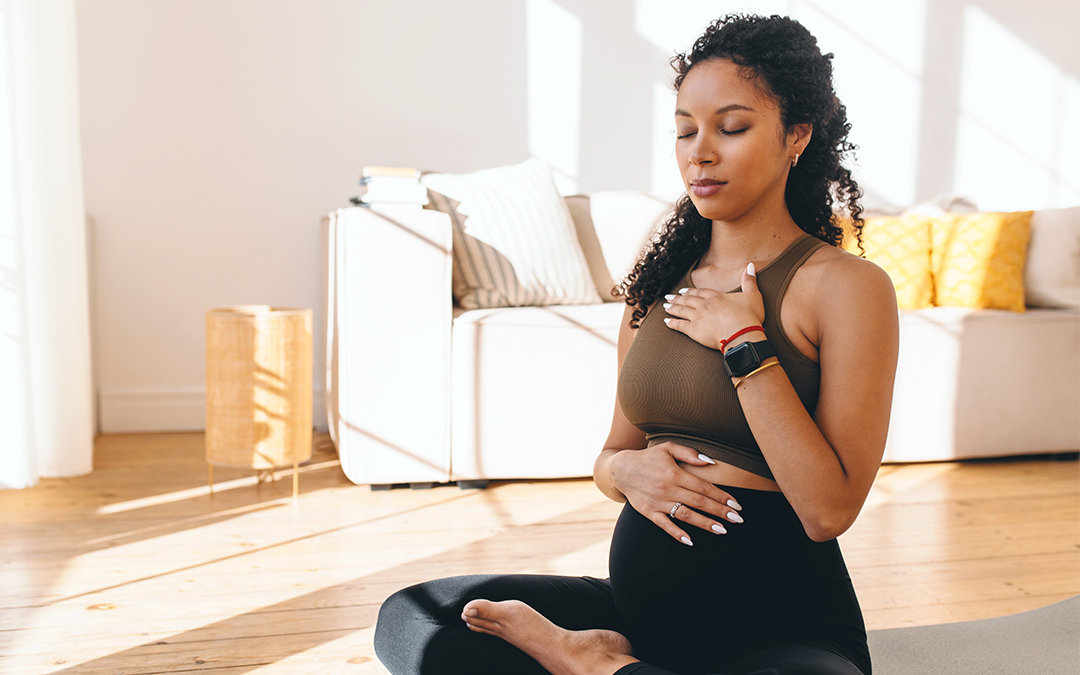I remember reading about the “usefulness” of deep breaths. It was listed as part of the different ways to tame anger. As a teenager in the thick of anger outbursts and feeling misunderstood, I cackled and tossed the paper away.
“Ain’t no way that a couple of breaths and counting to ten is going to help my anger,” I thought. It was ridiculous that anyone would suggest such a lame activity to counteract such intense feelings. I never tried deep breathing back then, and my anger dominated my life well into my 20s.
As it turns out, deep breathing has many benefits. Don’t get me wrong; it’s not always the right choice for self-regulation since we do need a variety of coping skills to address our different feelings/triggers. However, incorporating deep breathing into our daily routine has exceptional gains for our physical and mental health.
I think breathing is a commonly suggested way to treat dysregulation (most commonly anger, anxiety, and stress) because it’s free, easy, and helpful. The main advantage to breathing (other than it sustains life) is that it helps us slow down, and slowing down is something we don’t do enough of. The hustle-and-bustle culture we exist in encourages us to produce, produce, produce without ever considering our well-being. Resting, reflecting, and relaxing are necessary parts of a healthy lifestyle. Find a stressed-out person, and you’ll find someone not resting, relaxing, or reflecting enough.
One way to challenge the unsustainable pressures of grind culture is by practicing slowing down throughout the day. Noticing/validating our feelings, pausing before reacting, resting and sleeping well, vacationing throughout the year, and appreciating simple pleasures and glimpses throughout the day are all different forms of slowing down. When we are constantly rushing and in a state of urgency, it is easier to overlook small glimpses of joy, fun, and beauty. We live and do better when we have moments of pause and reenergizing.
Enter deep breathing.
Breathing is a quick and effective way to slow down, check in with our body, and give it a refreshing, revitalizing boost. When you’re having a hard day or if slowing down feels impossible, I challenge you to find three minutes to slow down and practice deep breathing. The results may surprise you!
So, what are the benefits of deep breathing?
Physical Benefits
One of the best things about deep breaths is that you intentionally add life to your organs. Deep breathing enhances the intake of oxygen and the expulsion of carbon dioxide, which helps improve our overall cellular function. Our cells carry oxygen to our organs and supply it with extra life-giving properties. Deep breathing has also been proven to lower blood pressure by prompting relaxation and reducing stress hormones that contract blood vessels.
Deep breathing exercises strengthen our diaphragm muscles and increase lung capacity, improving overall respiratory efficiency. It also helps activate the parasympathetic nervous system, which lowers our heart rate and calms the nervous system. Deep breathing before sleeping increases relaxation and sleep quality.
Mental and Emotional Benefits
Deep breathing is a powerful tool for stress reduction and anxiety management. It helps deactivate the body’s fight-or-flight responses and activates the relaxation response. Deep breaths provide a tool for managing intense emotions, allowing us to pause and respond thoughtfully rather than reacting impulsively. Taking time to breathe when our intense feelings increase our understanding and regulation of emotions because it gives us time to gather our thoughts and practice mindfulness. The increase in oxygen promotes the release of serotonin, dopamine, and endorphins (these are the feel-good hormones because they contribute to mood stabilization, happiness, and pleasure).
Cognitive Benefits
Increasing oxygen flow to the brain improves cognitive functions such as memory, attention, and problem-solving abilities. So, the next time you’re feeling distracted or struggling to focus, take a moment to focus on your breath and notice how it helps alleviate your mental fatigue.
Techniques for deep breathing
Diaphragmatic Breathing
Sit in a comfortable position. Place one hand on your chest and the other on your abdomen. Inhale deeply through your nose, allowing your abdomen to rise, and then exhale slowly through your mouth. Repeat 5-8 times. Notice any changes in your body and thoughts before and after this activity.
4-7-8 Breathing
Sit or lie in a comfortable position. Inhale through your nose for a count of 4 seconds, hold your breath for 7 seconds, and exhale through your mouth for a count of 8. Repeat several times and think of cells nursing your organs and body with more oxygen and life.
Alternate Nostril Breathing
Get comfortable and bring your attention to your breath. Close your right nostril with your thumb and inhale deeply through your left nostril. Then, close your left nostril with your ring finger and exhale through your right nostril. Reverse the process and repeat. The simple act of noticing your breath helps you fall in tune with your body and be present in the here and now.

